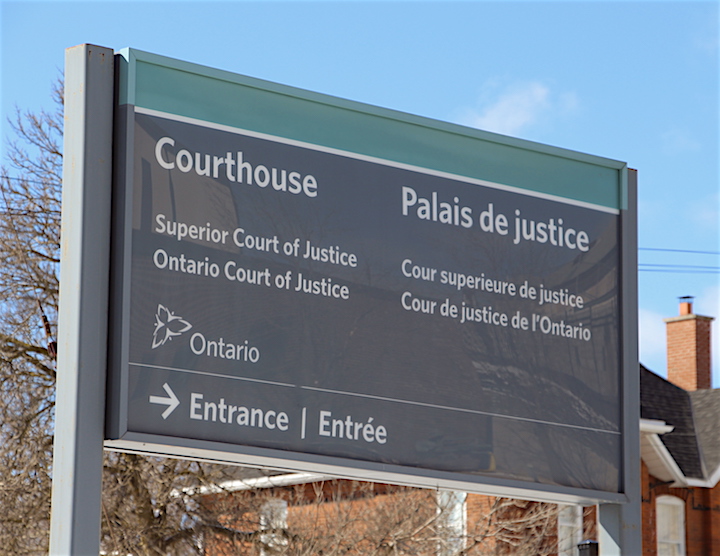TORONTO – Ontario’s top court has dismissed a legal challenge brought by a Toronto-area family that fought to keep their daughter on life support after she was declared brain-dead.

But the court of appeal declined to rule on whether accommodations for religious beliefs should be applied to the criteria used to determine that someone has died.
In a unanimous decision, the appeal court says that while death is not defined in law federally or provincially in Ontario, common law considers someone dead when there is the irreversible cessation of either cardiorespiratory or brain function.
However, it says there is not enough information before the court to settle the issues that form the crux of the case, including whether those criteria constitute a violation of the right to freedom of religion.
The court also notes that the woman at the heart of the challenge, Taquisha McKitty, has since died according to both neurological and cardiovascular criteria, rendering the ruling moot.
It says the same questions will likely emerge in other cases, and lays out guidelines on how to assess those arguments in the future, adding the lower court judge in this case made several errors.
“There are some significant shortcomings in the record because the Attorney General of Ontario did not participate in this litigation. Accordingly, some of the issues raised should not be resolved in a moot appeal on this record and must await future litigation or legislation,” the three-judge panel wrote.
- Train goes up in flames while rolling through London, Ont. Here’s what we know
- Wrong remains sent to ‘exhausted’ Canadian family after death on Cuba vacation
- Liberals having ‘very good’ budget talks with NDP, says Freeland
- Peel police chief met Sri Lankan officer a court says ‘participated’ in torture
“Nevertheless, there is some correction and direction that this court is able to provide.”
The appeal court said the judge who heard the family’s application erred in saying the charter does not apply to McKitty because it only protects “persons” and a clinically dead patient is not legally a “person.”
The fact that McKitty was brain dead at the time should not preclude her from challenging the criteria used to declare her dead, the appeal court said.
“Denying the opportunity to make the argument, on the basis of a criterion whose constitutionality is the subject of the litigation, begs the question that is in dispute,” it said.
McKitty was 27 when doctors declared her “dead by neurological criteria” in September 2017 following a drug overdose that left her unconscious.
Her relatives went to court to prevent doctors from taking her off life support, arguing her Christian faith defines death as the cessation of heartbeat, not brain function.
They argued the Charter of Rights and Freedoms requires doctors to make accommodations for religious beliefs in making a determination of death, and were granted an injunction to keep McKitty on a respirator until the case was resolved.
READ MORE: Family of Ontario woman ruled brain dead appeals to keep her on life support
An Ontario Superior Court judge ruled against them in the summer of 2018, and the family appealed the decision.
Hugh Scher, who represents McKitty’s family, said his clients have not yet decided whether they will seek leave to appeal Wednesday’s decision to the Supreme Court.
McKitty’s father, Stanley Stewart, repeated his belief that religious accommodations are needed when it comes to determining that someone has died.
“If a person can’t rely on their most sacred religious values and beliefs at the very moment of their death when they would most expect to derive comfort from them, one is left to wonder what is the value of a constitutional protection of religious liberty and equality,” he said in a statement.
“Courts and legislatures will need to address this mischief of the law in the future.”



Comments